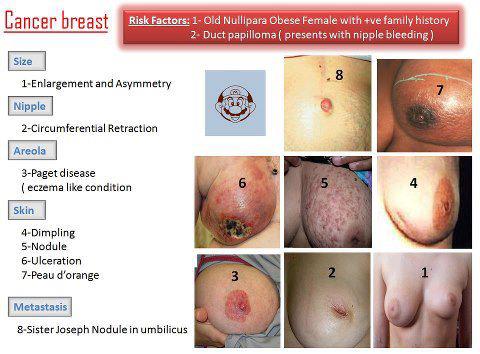Five Facts about Stroke for the Caregiver
If your loved one has suffered a stroke, there's no doubt that you're going through a very difficult and frightening time. The National Stroke Association tells us that over 750,000 people in America each year suffer a first or recurrent stroke, and one in 55 Americans are living with the effects of a stroke. If you are caring for someone who has recently had a stroke, here are five facts that you need to know:
1.It's All in the Head
Many people are confused when it comes to exactly what a stroke is. To understand stroke, think of it as a sort of "brain attack." When a blood clot interrupts the blood flow to an area of the brain, a stroke results. During a stroke, brain cells can die due to a lack of oxygen. As brain cells die, the abilities that are controlled by that particular area of the brain become impaired. Typically, these abilities include memory, speech and movement.
2.Effects on the Survivor
Because not every person is the same, every stroke is different. Each person is affected by stroke in different ways. On average, a stroke survivor can expect to have impaired mobility, memory loss, depressions, communication problems, muscle spasticity, and difficulty in performing daily tasks that require manual dexterity. A stroke survivor can incur one of these results or a combination of them. The resultant issues of a stroke can last for weeks, months or for the rest of the survivor's life.
3.Rehabilitation
If your loved one has had a stroke, his or her needs for rehabilitation therapy may vary. Each stroke patient will need to undergo some form of rehabilitation immediately after leaving the hospital. Your loved one may receive rehabilitation services directly from the hospital, from a specialized rehab hospital or even in a nursing home. If your loved one's stroke was mild, he or she may be able to undergo a course of rehabilitation at home. It's also important to note that rehabilitation may take as little as a few weeks and as long as several years.
4.Recovery Rates
As a caregiver, you should know that recovery rates among stroke victims vary widely. Of stroke victims, only ten percent recover completely. Twenty-five percent will recover with only minor physical impairments, 40 percent will require special care due to moderate to severe impairments, ten percent will requpire long-term care, and 15 percent die within days, weeks or months of suffering their stroke.
5.As a Caregiver
Caring for a loved one who has suffered a stroke can be a tiring, overwhelming process. It's not unusual caregivers to encounter feelings of guilt and depression. As the caregiver of someone who has suffered a stroke, it's important to remember that you can't do it all. Find help when you need it from friends and family members. You may also want to consider hiring a part-time nurse who can relieve you of your duties, even if it's only one day a week. Don't forget to take time for yourself; it doesn't make you a bad person. Keep in mind that the healthier you are both physically and mentally, the better equipped you will be to care for your loved one.
If your loved one has suffered a stroke, arming yourself with the facts will make the process that follows a stroke less overwhelming. If you are directly related to the person who has suffered a stroke, don't neglect to have your own risk assessed. A simple blood test, conducted as part of an annual physical, can tell you if you are at high risk for stroke.
John Martin writes articles for health blogs and suggests having blood work done one of the Tennessee lab testing locations.
1.It's All in the Head
Many people are confused when it comes to exactly what a stroke is. To understand stroke, think of it as a sort of "brain attack." When a blood clot interrupts the blood flow to an area of the brain, a stroke results. During a stroke, brain cells can die due to a lack of oxygen. As brain cells die, the abilities that are controlled by that particular area of the brain become impaired. Typically, these abilities include memory, speech and movement.
2.Effects on the Survivor
Because not every person is the same, every stroke is different. Each person is affected by stroke in different ways. On average, a stroke survivor can expect to have impaired mobility, memory loss, depressions, communication problems, muscle spasticity, and difficulty in performing daily tasks that require manual dexterity. A stroke survivor can incur one of these results or a combination of them. The resultant issues of a stroke can last for weeks, months or for the rest of the survivor's life.
3.Rehabilitation
If your loved one has had a stroke, his or her needs for rehabilitation therapy may vary. Each stroke patient will need to undergo some form of rehabilitation immediately after leaving the hospital. Your loved one may receive rehabilitation services directly from the hospital, from a specialized rehab hospital or even in a nursing home. If your loved one's stroke was mild, he or she may be able to undergo a course of rehabilitation at home. It's also important to note that rehabilitation may take as little as a few weeks and as long as several years.
4.Recovery Rates
As a caregiver, you should know that recovery rates among stroke victims vary widely. Of stroke victims, only ten percent recover completely. Twenty-five percent will recover with only minor physical impairments, 40 percent will require special care due to moderate to severe impairments, ten percent will requpire long-term care, and 15 percent die within days, weeks or months of suffering their stroke.
5.As a Caregiver
Caring for a loved one who has suffered a stroke can be a tiring, overwhelming process. It's not unusual caregivers to encounter feelings of guilt and depression. As the caregiver of someone who has suffered a stroke, it's important to remember that you can't do it all. Find help when you need it from friends and family members. You may also want to consider hiring a part-time nurse who can relieve you of your duties, even if it's only one day a week. Don't forget to take time for yourself; it doesn't make you a bad person. Keep in mind that the healthier you are both physically and mentally, the better equipped you will be to care for your loved one.
If your loved one has suffered a stroke, arming yourself with the facts will make the process that follows a stroke less overwhelming. If you are directly related to the person who has suffered a stroke, don't neglect to have your own risk assessed. A simple blood test, conducted as part of an annual physical, can tell you if you are at high risk for stroke.
John Martin writes articles for health blogs and suggests having blood work done one of the Tennessee lab testing locations.



Comments
Post a Comment